Monday, May 17, 2021
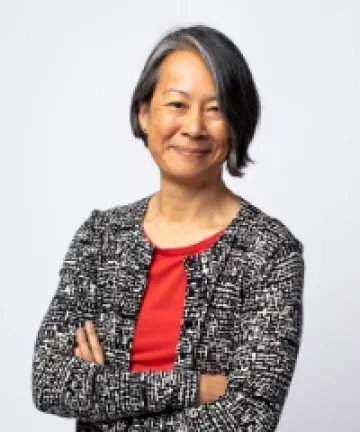
Renée Cheng
KEYNOTE SPEAKER
FAIA, DPACSA, NOMA
Dean of the College of Built Environments, University of Washington
Renée Cheng joined the College of Built Environments as dean on January 1, 2019. Dean Cheng comes from the University of Minnesota where she was a professor, associate dean of research, head of the school of architecture, and directed an innovative graduate program linking research with practice and licensure. Prior to UMN, she taught at the University of Michigan and the University of Arizona. She is a graduate of Harvard’s Graduate School of Design and Harvard College.
A licensed architect, her professional experience includes work for Pei, Cobb, Freed and Partners and Richard Meier and Partners before founding Cheng-Olson Design. Dean Cheng has been honored twice as one of the top 25 most admired design educators in the United States by DesignIntelligence. She has received numerous honors and awards including the 2017 Lean Construction Institute Faculty Award and was named to the American Institute of Architecture’s College of Fellows in 2017.
Cheng is a leader in the American Institute of Architects (AIA) and advocates for equity in the field of architecture and in the practices related to the built environment. Recently, Cheng led the research effort for the AIA guides for equitable practice in the workplace. Cheng has pioneered research surrounding the intersection of design and emerging technologies, including work on industry adoption of Integrated Project Delivery, Building Information Modeling and Lean.
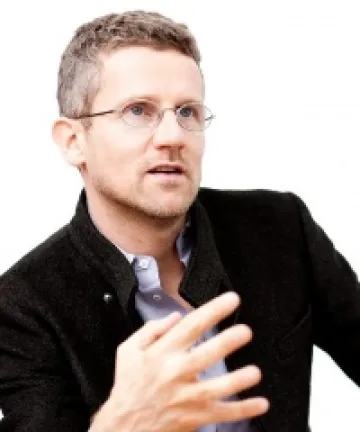
Carlo Ratti
KEYNOTE SPEAKER
Director of SENSEable City Lab, MIT
An architect and engineer by training, Professor Carlo Ratti teaches at the Massachusetts Institute of Technology (MIT), where he directs the Senseable City Lab, and is a founding partner of the international design and innovation office Carlo Ratti Associati. He graduated from the Politecnico di Torino and the École Nationale des Ponts et Chaussées in Paris, and later earned his MPhil and PhD at the University of Cambridge, UK.
A leading voice in the debate on new technologies’ impact on urban life and design, Carlo has co-authored over 500 publications, including “The City of Tomorrow” (Yale University Press, with Matthew Claudel), and holds several technical patents. His articles and interviews have appeared on international media including The New York Times, The Wall Street Journal, The Washington Post, Financial Times, Scientific American, BBC, Project Syndicate, Corriere della Sera, Il Sole 24 Ore, Domus. His work has been exhibited worldwide at venues such as the Venice Biennale, the Design Museum Barcelona, the Science Museum in London, MAXXI in Rome, and MoMA in New York City.
Carlo has been featured in Esquire Magazine’s ‘Best & Brightest’ list and in Thames & Hudson’s selection of ‘60 innovators’ shaping our creative future. Blueprint Magazine included him as one of the ‘25 People Who Will Change the World of Design’, Forbes listed him as one of the ‘Names You Need To Know’ and Fast Company named him as one of the ’50 Most Influen-tial Designers in America’. He was also featured in Wired Magazine’s ‘Smart List: 50 people who will change the world’. Three of his projects – the Digital Water Pavilion, the Copenhagen Wheel and Scribit – have been included by TIME Magazine in the list of the ‘Best Inventions of the Year’.
Carlo has been a presenter at TED (in 2011 and 2015), program director at the Strelka Institute for Media, Architecture and Design in Moscow, curator of the BMW Guggenheim Pavilion in Berlin, and was named Inaugural Innovator in Residence by the Queensland Government. He was the curator of the Future Food District pavilion for the 2015 World Expo in Milan and chief curator of the "Eyes of the City" section at the 2019 UABB Biennale of Architecture and Urbanism of Shenzhen. He is currently serving as cochair of the World Economic Forum’s Global Future Council on Cities and Urbanization.
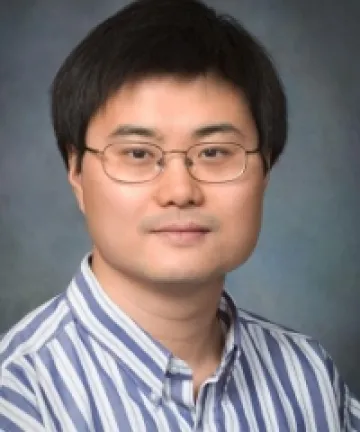
Bo Yang
TALKS ON A THEME: HEALTHY URBAN SPACES
Professor of Landscape Architecture and Urban Planning, University of Arizona
Bo Yang PhD, PLA ASLA AICP is a professor in the School of Landscape Architecture and Planning. Prior to joining the University of Arizona Bo taught at Utah State University and Texas A&M University. Bo holds a PhD in Urban and Regional Sciences and a Master of Landscape Architecture from Texas A&M University and a Master of Architecture and Bachelor of Architecture from Huazhong University of Science and Technology in China. Bo has professional experiences in multidisciplinary firms (architecture, planning, and landscape architecture) in China and the United States (e.g., SWA Group, HNTB). His areas of interest are green infrastructure design and low-impact development, landscape performance assessment, environmental planning and technology, and landscape history and theory in China and East Asia. His research has been funded by the National Science Foundation, U.S. Geological Survey, Landscape Architecture Foundation, National Natural Science Foundation of China and others. He has published in premier academic journals, including Landscape and Urban Planning, Ecological Engineering, Landscape Research and Ecological Indicators, and is currently assistant editor of Landscape Research (Routledge). Bo is a registered landscape architect (Utah) and a member of the American Institute of Certified Planners.
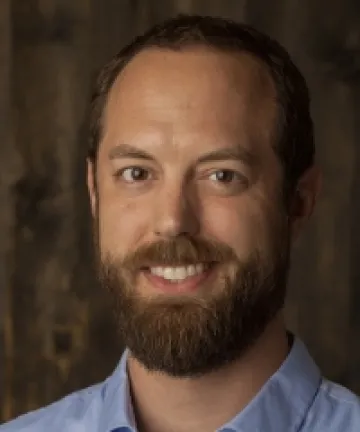
Ladd Keith, Ph.D
TALKS ON A THEME: HEALTHY URBAN SPACES
Professor of Landscape Architecture and Urban Planning, University of Arizona
Ladd Keith, Ph.D. is an interdisciplinary researcher working at the intersection of urban planning and climate change to create more sustainable and resilient cities. With over a decade of experience working with diverse stakeholders in cities across the U.S. solving complex urban challenges, he is particularly interested in research that informs practice. His current research explores the emergent area of urban heat governance and how cities manage and mitigate extreme heat risk.
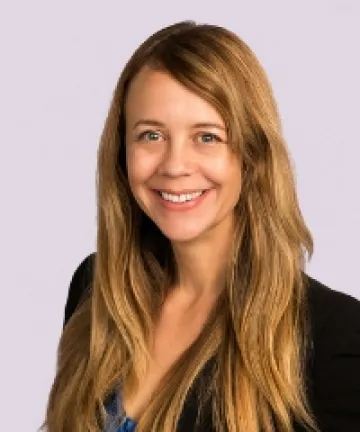
Aletheia Ida
TALKS ON A THEME: BUILDING RE-ENTRY & POST-PANDEMIC PROCESSES
Associate Professor of Architecture, Program Chair, Master of Science in Architecture, Faculty Advisor, MS Arch Emerging Building Technologies concentration, University of Arizona
Aletheia Ida, PhD, AIA, NCARB, LEEP AP, is an architect and associate professor in the School of Architecture and Co-Director of the Adaptive Environments Design Lab. She teaches courses in Design Studio, Research Methods, Environmentally Adaptive Systems, Emerging Materials, Building Enclosures, Environmental Building Technology Design Theory, as well as Independent Research and Thesis advising. Aletheia earned her accredited Bachelor of Architecture degree from the University of Oregon, post-professional Master of Architecture in Design and Energy Conservation from the University of Arizona, and Doctorate in Architectural Sciences from the Center for Architecture, Science and Ecology at Rensselaer Polytechnic Institute. She integrates design theory in her research for emergent environmental building technologies, incorporating aspects of material inventions with socio-environmental performance criteria through innovative digital and physical prototyping methods.
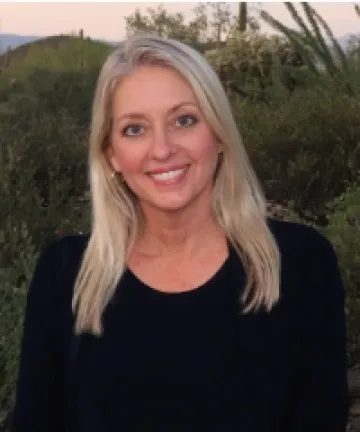
Kelly Reynolds, PhD
TALKS ON A THEME: BUILDING RE-ENTRY & POST-PANDEMIC PROCESSES
Professor and Chair of the Department of Community, Environment and Policy; Director of the Environment, Exposure Science and Risk Assessment Center (ESRAC); University of Arizona
Dr. Reynolds is Professor and Chair of the Department of Community, Environment and Policy at the Zuckerman College of Public Health, and Director of the Environment, Exposure Science and Risk Assessment Center at the University of Arizona. She has over 34 years of experience as an environmental microbiologist and infectious disease researcher, specializing in water quality, food safety, and human health risk assessment. During her academic career, Dr. Reynolds has served as a principal investigator on numerous projects and published over 400 journal articles, book chapters, and professional reports. Her work has been featured in hundreds of popular media outlets, including the New York Times, Wall Street Journal, BuzzFeed, and Huffington Post. Dr. Reynolds specializes in integrating academic teams with industry and community stakeholders for a multidisciplinary approach toward research, communication, and management efforts in infection prevention.
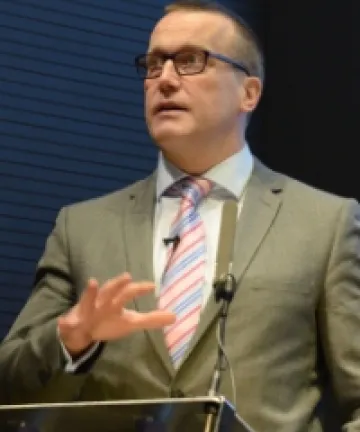
Neil Coole
TALKS ON A THEME: BUILDING RE-ENTRY & POST-PANDEMIC PROCESSES
BSI Americas, Director – Food & Retail Sector
Neil Coole is a BSI subject matter expert who has more than 23 years of experience working in the standards development, testing, inspection and certification industry, who has presented on the important topic of supply chain resilience at numerous industry events. Since re-joining BSI in 2018 from BRC Global Standards, as Food & Retail Supply Chain Director of the Americas, Neil and his team have been actively supporting organizations throughout the food and retail industry wishing to implement the necessary best practice standards to protect their reputation, manage risk, improve trust and stand the test of time. By developing and supporting clients on their journey towards a more resilient supply chain, focusing on the importance of organizational resilience, of which supply chain resilience is a key pillar, along with operational resilience and information resilience.
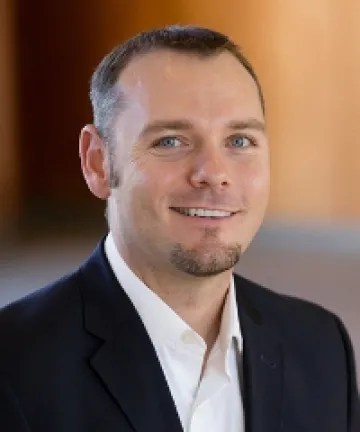
Dan Clevenger, AIA, LEED BD+C
TALKS ON A THEME: BUILDING RE-ENTRY & POST-PANDEMIC PROCESSES
Principal, DLR Group
As a leader within DLR Group’s Cultural+Performing Arts Studio, Dan directs integrated design teams in the pursuit and implementation of world-class visual and performing arts venues. Dan has 18 years of experience, and advocates for a process centered on collaboration between the client, project stakeholders, and the design team. He believes exceptional design for fine and performing arts venues arise out of a balance between technical and aspirational aspects that leave patrons with an authentic experience of the arts and provides artists with the tools and environment they need to inspire audiences.
Dan has worked with arts programs, encompassing music, theater, dance, film and media, and the visual arts, at numerous higher education institutions. These include the University of Mary Hardin-Baylor, The University of Nevada Reno, the University of Arizona, Texas Tech University, and numerous community college districts in California.
Dan has served as an educator in the Design School at Arizona State University, on the Board of Directors for AIA Arizona, as the Director for the AIA Young Architects Forum in the Western Mountain Region, and is currently the President Elect of AIA Phoenix Metro. He channels his passion for the arts into advocacy as an executive on the board of directors for Artlink, Inc., a Phoenix-based non-profit organization whose mission is to connect artists, businesses, and the community. In recognition of Dan’s professional, service, and community achievements, he was awarded with both the AIA Phoenix Metro AIA10 Award, and the AIA Western Mountain Region Young Architects Award.
Dan holds a Master of Architecture from Arizona State University and a Bachelor of Architecture from The Ohio State University.
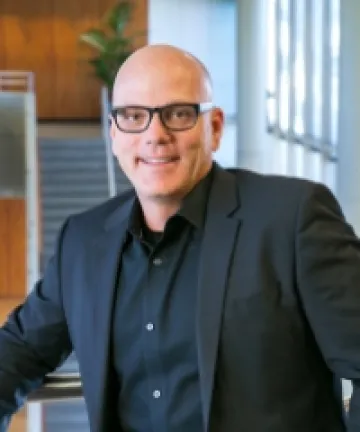
Peter Rutti, AIA, NCARB
TALKS ON A THEME: BUILDING RE-ENTRY & POST-PANDEMIC PROCESSES
Senior Principal, DLR Group
Peter Rutti has over 25 years of experience in the architectural field, focusing for the past 20 years on the design of complex and high-profile performing arts centers for professional and higher education clients. Peter is a recognized expert in the design of both performing art centers and cultural institutions. His broad skill set is an asset to the firm and DLR Group’s client base. His design approach focuses on fostering collaboration, engaging personally on projects, listening to client needs, assessing project programs, giving design form, and delivering inspiring solutions. He understands not only how to design complex cultural arts facilities, but more importantly, what makes them resonate with the audiences and communities who enjoy them.
As DLR Group’s Southwest Design Leader, Peter is responsible for the oversight of all design in Arizona, Colorado, New Mexico, Utah, Nevada and Wyoming. He believes a hands-on approach to client relationships, business development, and design collaboration is absolutely essential to success. His unique approach to collaboration, design-based solutions, and communication make him a sought after thought leader.
Peter believes in giving back and supports local the architectural communities through his involvement in a number of organizations. He has been Chair of Communications for the AIA Arizona State Board and board member of the Arizona Citizens for the Arts. He has held an Adjunct Professor position at the Arizona State University School of Architecture & Landscape Architecture where he taught graduate level Comprehensive Design Studios focusing on the design of cultural art centers. Peter also serves a visiting critic at the UCLA School of Architecture & Urban Design and the University of Arizona School of Architecture & Landscape Architecture.
Peter holds a Master of Architecture from the University of California Los Angeles and a Bachelor of Architecture from the University of Arizona.
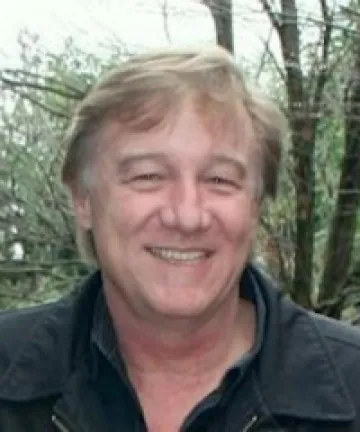
James L. Buizer
CLOSING REMARKS
Interim Director, Arizona Institutes for Resilience, Professor, School of Natural Resources and the Environment, Research Scientist, Arid Lands Resource Sciences Program, Graduate Interdisciplinary Program in Global Change Faculty, University of Arizona
James (Jim) Buizer serves as Interim Director of the Arizona Institutes for Resilience where he is responsible for its implementation and management. He is professor of Climate Adaptation and International Development in the School of Natural Resources and the Environment, as Research Scientist in the Arid Lands, Water, and People Program, and as Faculty Affiliate to the Graduate Interdisciplinary Program in Global Change.
His research focuses on mechanisms to incorporate scientifically-based findings of projected impacts of climate variability and change into development decisions, and has worked in 20 countries across the globe over his career.
From 2003-2011 Jim served as Senior Advisor for Institutional Transformation to the president at Arizona State University (ASU), where he led the design and establishment of the Global Institute of Sustainability and its degree-granting School of Sustainability. Prior to ASU, Jim was director of the Climate and Societal Interactions Division at NOAA in Washington, D.C., where he was responsible for designing and leading interdisciplinary research and applications programs positioned at the climate and societal interface.
Jim serves as Immediate Past Chairman of the Board of Directors at Second Nature, Inc., on the Board of Directors at the National Council for Science and the Environment, and on the boards of several other national environmental non-profit organizations. He also served in numerous leadership roles for the production of the Third National Climate Assessment and was a lead author of the Climate Effects on U.S. International Interests Chapter of the Fourth National Climate Assessment. He has published extensively on institutionalizing the science-to-action interface, integrating climate information into development decision processes, and climate assessments.
Tuesday, May 18, 2021
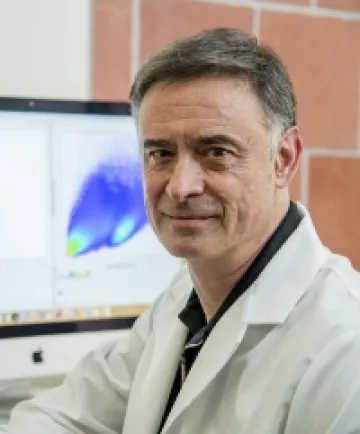
Janko Nikolich-Žugich, CGAPS
OPENING REMARKS
Department Head and Professor, Immunobiology, Co-Director, Arizona Center on Aging, Professor, Medicine, Professor, Nutritional Sciences, Professor, BIO5 Institute, Professor, Genetics-GIDP, Professor, Neuroscience-GIDP, University of Arizona
Dr. Nikolich-Žugich is internationally recognized as a leading immunologist and gerontologist. He received his M.D., MSc and Ph.D. in Immunology from Belgrade University School of Medicine. From 1987 to 1990, he worked as a Research Associate at the Scripps Clinic and Research Foundation in the laboratory of Dr. Michael J. Bevan, FRS, NAS, HHMI. In 1990, he joined the Memorial Sloan-Kettering Cancer Center in New York as the Head of both the Flow Cytometry Core Facility and the Laboratory of T Cell Development, first as Assistant and then Associate Member. He served as Assistant Professor (1990-1996) and Associate Professor (1996-2001) at both the Cornell University Graduate School of Medical Sciences and the Division of Molecular Medicine in Cornell University School of Medicine. He was a recipient of the Pew Biomedical Scholar Award and the Louise and Allston Boyer Young Scientist Award. In 2001, Dr. Nikolich-Žugich assumed the position of Senior Scientist at the Oregon Health & Science University at the Vaccine and Gene Therapy Institute, along with joint appointments as a tenured Professor in the Department of Molecular Microbiology and Immunology and a Senior Scientist at the Oregon National Primate Research Center. In 2008, Dr. Nikolich-Žugich moved to the University of Arizona to lead the Department of Immunobiology and the Arizona Center on Aging. His long-term interests include basic mechanisms of T-cell function, immunity to infection in older adults, vaccines and biomarkers of declining immunity in the elderly, immune rejuvenation, immune monitoring in chronic conditions of aging and the impact of inflammation and nutritional intervention in aging, immunity and metabolic disorders. He has published over 130 scientific papers and reviews describing his work.
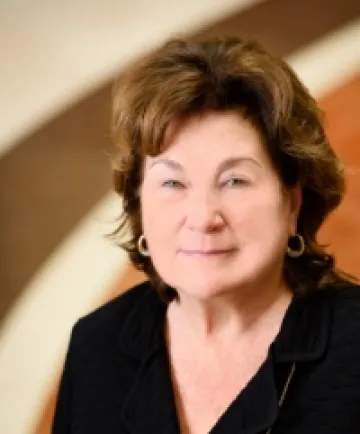
Suzanne Iacono
KEYNOTE SPEAKER
Head, Office of Integrative Activities, National Science Foundation
Dr. Suzi Iacono has served as Head of the Office Integrative Activities (OIA) in the NSF Office of the Director since June 2015.
Dr. Iacono joined NSF in 1998 and served in a number of leadership roles in the Directorate for Computer and Information Science and Engineering prior to leading OIA.
Prior to coming to NSF, Dr. Iacono held a faculty position at the Boston University School of Management, was a visiting scholar at the Massachusetts Institute of Technology, and a research associate at the University of California, Irvine.
OIA is unlike any other office or directorate at NSF in that it covers a very diverse portfolio of activities. As Head of OIA, Dr. Iacono works across disciplinary boundaries to lead and coordinate strategic programs and opportunities that advance research excellence and innovation; develop human and infrastructure capacity for the science and engineering enterprise; and promote engagement of scientists and engineers at all career stages.
Under Dr. Iacono’ s leadership, the OIA has expanded to include a new Convergence Accelerator Office facilitating use-inspired convergent research in areas of national importance and the Evaluation and Assessment Capability section, which provides centralized support and resources for data and analytics across the agency.
Throughout her career, Dr. Iacono has remained dedicated to strengthening NSF's broadening participation portfolio and champions diversity and inclusion in her office, throughout the agency, and in the research community. She works to continuously strengthen and improve the NSF merit review process and has been instrumental in developing a better understanding of the complex issues that surround broader impacts and broadening participation.
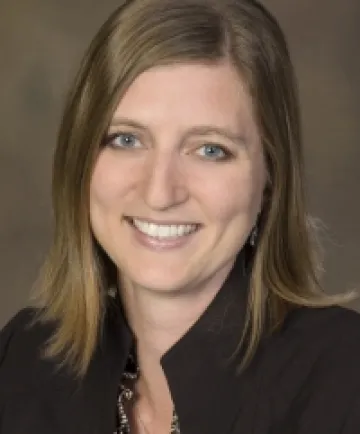
Kim Patten
Q&A FOR SUZANNE IACONO
Assistant Vice President for Research Development, University of Arizona
Kim Patten serves as Assistant Vice President for Research Development, at the University of Arizona. She leads a team of research development professionals that excel in supporting faculty in their pursuit of extramural funding. Part of this success is based on a holistic view of research development and the research lifecycle with an emphasis on the societal impacts of research. Prior to joining UA, Patten managed projects and programs in conservation, renewable energy, and distributed data systems both nationally and internationally. As Associate Director at the Arizona Geological Survey she managed and conducted research on a more than $30m portfolio, including Co-PI on a $3.6m National Science Foundation (NSF) project and project manager of a $22m U.S. Department of Energy project. Prior to her work at AZGS, she was Programs Director at a science-based non-profit organization where she helped develop the organization's research portfolio resulting in the organization's first NSF funding.
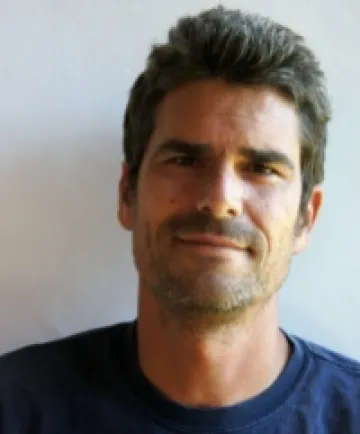
Bill Mackey
TALKS ON A THEME: POST-PANDEMIC CHALLENGES
Principal, Worker Inc.
Bill Mackey is a principal of Worker, Inc., a firm specializing in art and architecture. The work explores human connections to designed and natural environments and bridges the theory and practice of social sciences, planning, architecture, and art. Engagement simultaneously includes public, academic, and professional fields.
Worker, Inc. has produced over 30 exhibits, books, and pamphlets about the human relationship with land and space through private funding and grants from the Graham Foundation for Advanced Studies in Fine Arts, the Kresge Foundation, and the Tucson Pima Arts Council / Arts Foundation for Tucson and Southern Arizona.
Bill Mackey has over 25 years of experience as a professional architect. He is responsible for the design of restaurants, apartments, single family homes, zoos, and jails. His work has received awards from the American Institute of Architects, Sunset Magazine, the American Concrete Institute, Arizona Society of Landscape Architects, Metropolitan Pima Alliance, Custom Home Magazine, the Tucson Pima County Historic Commission, and the Arizona Department of Environmental Quality.
Bill has taught as a Lecturer at the School of Architecture, the Honors College, and the Department of Geography and Regional Development at the University of Arizona. While a Lecturer at the School of Architecture, Bill worked as a Principal Investigator for 3 studies with the Drachman Institute – all related to housing and transportation.
Bill is mildly active in the community. He served as a commissioner with the Tucson/Pima County Historic Commission, facilitated projects with high school students at City High, provided pro-bono services for non-profit organizations, and led community based design charrettes.
Finally, he likes to draw. His illustrations have appeared in the following books and magazines: the New Yorker, the Lumpen Times, Version, Proximity, Trans-Loci, You Are Here, Zocalo, Eat Mesquite and More, The Architect’s Guide to Effective Self-Presentation, and Kore Press’s Big Read event.
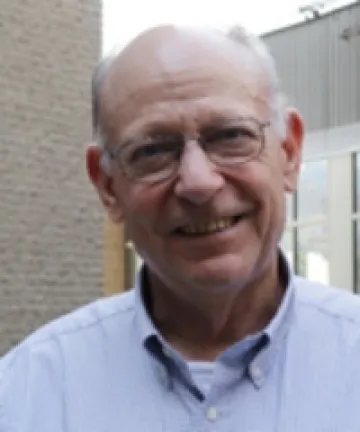
Joseph Galaskiewicz
TALKS ON A THEME: POST-PANDEMIC CHALLENGES
Professor at the School of Sociology, University of Arizona
Joe Galaskiewicz is a Professor in the School of Sociology at the University of Arizona. NSF funded his research on nonprofit, for-profit, and government establishments in urban neighborhoods from 2003 to 2018. He looked at both changes in establishments’ composition and locations over time and the consequences of these changes for residents. In collaboration with researchers at the National Institute for Environmental Studies (Japan) he also did comparative research on countries’ ratifications of environmental treaties over the past forty years focusing on the role that inter-state networks played.
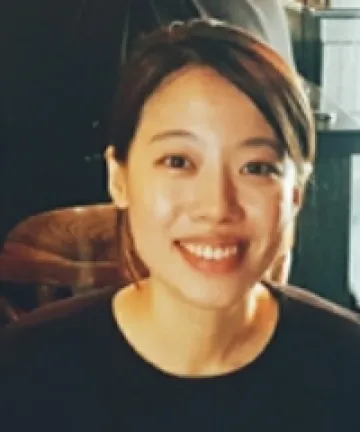
Eunsung Yoon
TALKS ON A THEME: POST-PANDEMIC CHALLENGES
Ph.D. Candidate, School of Sociology, University of Arizona
Eunsung Yoon is a Ph.D. candidate in the School of Sociology at the University of Arizona. Her research is on organizations, social networks, and economic sociology with a focus on the influence of market competitors on decision-making and perception. She is interested in applying novel computational and quantitative methods, such as machine learning, network analyses, and natural language processing, in her research projects.
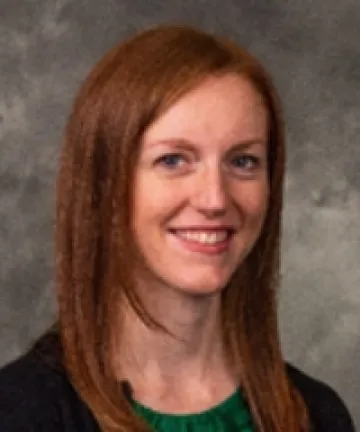
Kathryn Freeman Anderson, Ph.D.
TALKS ON A THEME: POST-PANDEMIC CHALLENGES
Assistant Professor, Director of Graduate Studies in Department of Sociology, University of Houston
Kathryn Freeman Anderson is an assistant professor and the director of graduate studies in the Department of Sociology at the University of Houston. She received a Ph.D. in Sociology from the University of Arizona in 2016. Professor Anderson specializes in the sociology of health and illness, urban sociology, race/ethnicity and organizations. Her work is generally focused on understanding the social sources of health disparities in the United States. In particular, she examines the role of race/ethnicity and urban neighborhood dynamics to analyze how these factors may affect individual health.
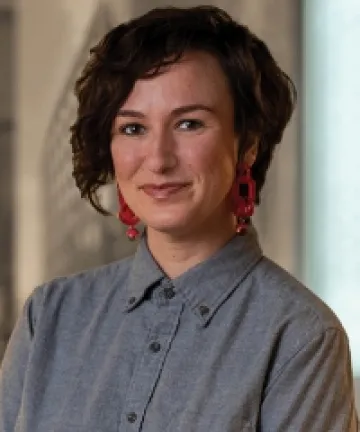
Bonnie Sanborn
TALKS ON A THEME: POST-PANDEMIC CHALLENGES
Design Research Leader, DLR Group
As the firm’s Design Research Leader, Bonnie plays a unique leadership role within DLR Group’s growing R&D studio, collaborating with researchers in design technology, human-environment relations, and data analytics to generate actionable data, stimulate innovation, and activate a culture of knowledge-sharing within the firm.
Bonnie supports both DLR Group studios and integrated design teams in developing design goals based on relevant, applicable research, and leverages validated tools to assess project outcomes. B also serves as the firm’s conduit to stakeholder groups including colleagues, industry partners, academia, and clients to share DLR Group’s research position and outcomes.
B's background in academia and industry includes instruction and facilitation in environmental psychology, design thinking techniques, and product development. Their experience in social science and material culture sheds light on the connections between the built environment and human behavior in learning, working, and social interaction. B's academic background also includes anthropology and psychology, which further enable them to see clients and projects through a unique lens and identify underlying motivations for creating real change.
B holds a Master’s of Science in Environmental Psychology and a Bachelor’s of Arts in Archaeology and Physical Anthropology. They have an Evidence-Based Design accreditation from the Center for Health Design, and are a member of the EDAC Advisory Council certified in Social, Environmental, and Economic Design by the Public Interest Design Institute. B is active in organizations that seek to connect research to design including the Environmental Design Research Association. They are a National Allied Member of the AIA and are active in Chicago’s LGTBQ+ design community, including the LGBT Chamber of Commerce.
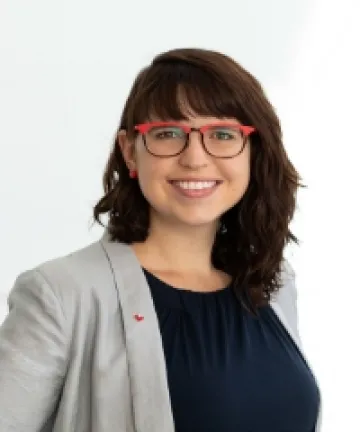
Raechel French
TALKS ON A THEME: POST-PANDEMIC CHALLENGES
Senior Associate, DLR Group
Raechel is an educational planner with a focus on K-12 learning environments. Raechel received a double degree in Architecture and Psychology and completed postgraduate work in Facility Planning and Management, focusing on Human-Environment Relations. This provides a unique lens in her planning work, with a heightened eye on the alignment between teaching and learning activities and the built environment. In addition to her planning role, Raechel is heavily involved in DLR Group’s K-12 research initiatives. She is a Fulbright Postgraduate Scholar and spent 2017 conducting research on the teacher transition to innovative learning environments in Australia. She is continuing this work through a Doctoral program in the Graduate School of Education at the University of Melbourne. This experience adds depth to her knowledge and allows Raechel to assist districts in the planning, design, and successful inhabitation of their school facilities.
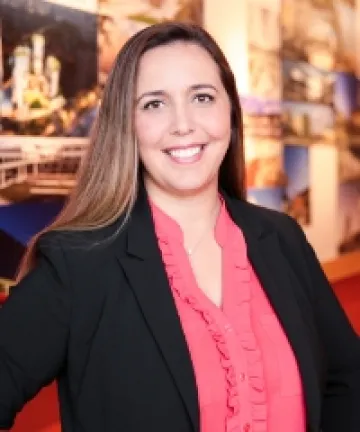
Nicole Nichols
TALKS ON A THEME: POST-PANDEMIC CHALLENGES
AIA, Higher Education Leader, DLR Group
Nicole is a licensed Architect and the Higher Education Sector Leader for the Southeast Region in DLR Group. Nicole fully embraces the DLR Group Brand Promise to: Elevate the Human Experience Through Design. Her passion for an equitable, inclusive, and engaging design process builds consensus and brings value to her campus partners while delivering on this brand promise. This passion and her personal experience rising in her career as a minority has led to her recent appointment to DLR Group’s Global EDI Forum. Nicole is serving an 18 month term to help form DLR Group’s EDI framework - rooted first in Equity. Nicole is also part of the leadership of the Evolution of Campus research initiative examining the changes and developments in higher education environments and business processes resulting from the events of 2020. Her professional accolades are balanced with her personal accomplishments - as a mother of two young girls, Nicole is passionate about being a wife and mother while setting a great example for her daughters to follow.
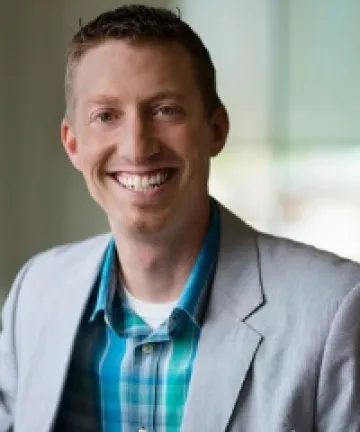
Jeremy Reding
TALKS ON A THEME: POST-PANDEMIC CHALLENGES
AIA, LEED AP, WELL AP, Principal at DLR Group
Jeremy is an innovative designer and architect who cares about both the big picture and intricate details of each and every project. As a product of Generation Flux, Jeremy is interested in design that explores the holistic aspects of a given environment, program, or brand through every scale and detail. His inspiration flows from a variety of sources including: land art, travel, biomimicry, and client interaction. Jeremy’s work includes projects for public and private clients alike, of all shapes and sizes, including work for clients in workplace, K-12, and Justice+Civic.Jeremy serves as a lead designer for many of the DLR Group’s global technology clients, including LinkedIn, Google, Facebook, and Microsoft. As part of these engagements, he has been at the leading edge of defining new space types and design features that support the workplace of the future.
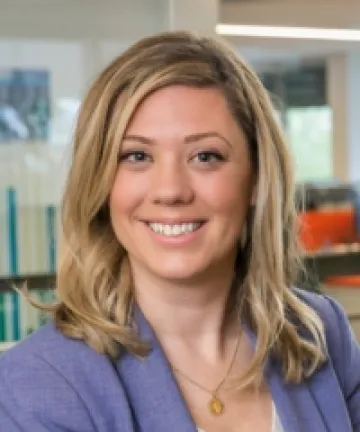
Linsey Graff
TALKS ON A THEME: POST-PANDEMIC CHALLENGES
Assoc. AIA, Senior Associate, DLR Group
Linsey has dedicated her career to planning and designing learning environments with an emphasis on community outreach, design education, diversity, and inclusion both within academic communities and within the profession of architecture. She has served as both an institutional representative as well as worked in private practice. As a campus planner, Linsey has engaged with multiple universities to develop campus plans, sustainability plans, and strategic visioning. In 2017, Linsey was honored with an AIA Associates Award, a recognition given to outstanding leaders and creative thinkers for significant contributions to their communities and the architecture profession. With comprehensive campus planning experience, Linsey will support campus and community engagement that facilitates user groups to define goals and objectives, prioritize planning solutions, and encourage participatory decision-making.
UA Restruct Funded Projects
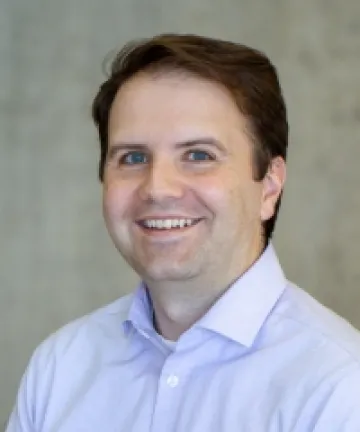
Euan McLeod
UA RESTRUCT FUNDED PROJECTS
Assistant Professor, College of OpVcal Sciences, University of Arizona
Euan McLeod is an Assistant Professor in the College of OpVcal Sciences at the University of Arizona (UArizona) since 2015. He is also an Assistant Professor of the UArizona BIO5 InsVtute and an Affiliate Member of the UArizona Cancer Center. He was previously a postdoc in Electrical Engineering and Bioengineering at UCLA, as well as a postdoc in Applied Physics at Caltech. He received his Ph.D. from Princeton University and his B.S. from Caltech. Euan is a Senior Member of the OpVcal Society of America and a Life Member of SPIE. Euan’s background and interests lie at the intersecVon of opVcs, nanoscience, and so\ bio-materials science. He has published more than 35 papers on these topics in peer-reviewed journals, with major contribuVons in the areas of high-speed varifocal lenses based on acousVc modulaVon; lensfree holographic imaging of nanoparVcles, viruses, and biomarkers; and the use of opVcal tweezers in fabricaVng micro- and nano-structured materials. His Ph.D. work on tunable acousVc gradient index (TAG) lenses led to numerous innovaVon awards, including: a 2013 R&D 100 Award; a 2013 SPIE & Photonics Media: Prism Award; and a 2017 Thomas Alva Edison Patent Award. This patented technology is now fully licensed by Mitutoyo Corp and commercially sold.
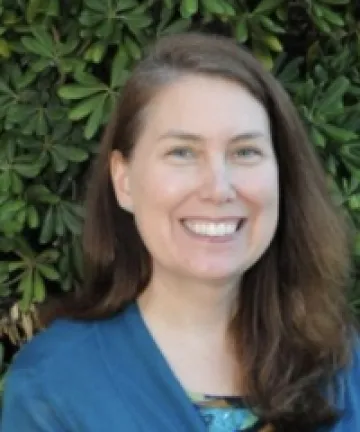
Jill Castek , Ph.D.
UA RESTRUCT FUNDED PROJECTS
Associate Professor, University of Arizona, TLS Department
Dr. Jill Castek is an Associate Professor in the Department of Teaching, Learning, and Sociocultural Studies at the University of Arizona, USA. Her research explores the development of literate capaciYes, in print and digital forms. She is the co-director of the Digital InnovaYon and Learning Lab (DIALL). DIALL inspires innovaYon through digital, visual, and audio storytelling that encourages learners' ability to collaborate and tackle complex problems with creaYve, innovaYve, and nimble higher-level thinking. She is a co-principal invesYgator for the "Making Equity Network: CoordinaYng Research for CriYcal Making Cultures and PracYces" project. This network brings together collaborators and educators working at the intersecYon of equity and interdisciplinary making in STEM educaYon. The project’s efforts aim to broaden STEM parYcipaYon through pursuing common research quesYons, sharing resources, and incubaYng emergent inquiries across formal and informal learning.
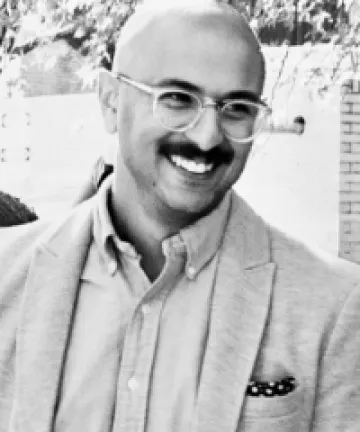
Omar Youssef PhD, Assoc. AIA
UA RESTRUCT FUNDED PROJECTS
MS Arch Faculty Advisor for the Design and Energy Conservation Concentration, University of Arizona
Omar Youssef PhD, Assoc. AIA is the MS Arch Faculty Advisor for the Design and Energy Conservation Concentration, and a Lecturer in the School of Architecture and Sustainable Built Environments, a Research Associate in the Institute on Place, Wellbeing, and Performance (IPWP) at the University of Arizona. He has degrees in Interdisciplinary Sciences (PhD) and Design + Energy Conservation (MSc) from the University of Arizona. Youssef teaches environmental control systems, sustainable architecture studio and advanced computer simulation for thermal performance optimization of Buildings. His research utilizes the use of drones, virtual reality, and wearable devices to assess the impacts of the built environment on human health and wellbeing.
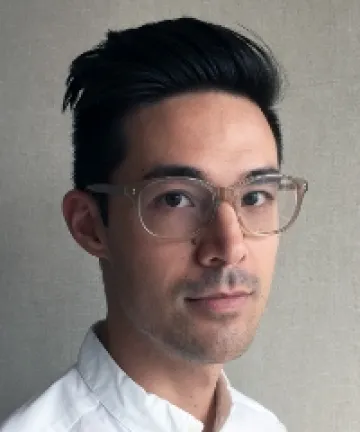
Dr. Jonathan Jae-an Crisman
UA RESTRUCT FUNDED PROJECTS
Assistant Professor, Public & Applied Humanities, University of Arizona
Jonathan Jae-an Crisman is an arUst and urban scholar whose work considers the intersecUons between culture, poliUcs, and place. His book Urban HumaniUes: New PracUces for Reimagining the City (MIT Press, 2020), coauthored with Dana Cuff, Anastasia Loukaitou-Sideris, Todd Presner, and Maite Zubiaurre, stakes out new disciplinary terrain for the humaniUes. His current research focuses on the role that art and culture can play as forms of poliUcal engagement in gentrifying ciUes, and on the visualizaUon of urban and borderlands phenomena including extreme heat, border mortality, and strip mall cultures. Work from his collaboraUve art pracUce has been shown at the Los Angeles Contemporary Archive, the Los Angeles Forum for Architecture and Urban Design, the West Bund Biennial of Arts and Architecture, and the Reykjavík Arts FesUval. He is currently Assistant Professor of Public & Applied HumaniUes at the University of Arizona, with courtesy appointments in Architecture, Art, Geography, and Urban Planning.
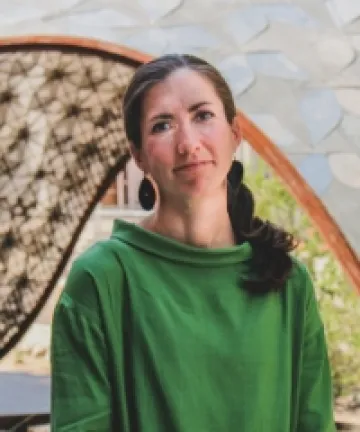
Courtney Crosson
UA RESTRUCT FUNDED PROJECTS
Assistant Professor, University of Arizona
Courtney Crosson is a licensed architect and Assistant Professor at the University of Arizona. She has worked for Foster + Partners, UN Habitat, and BuroHappold Engineering. Her current research advances decentralized water systems to address pressing problems facing cities – whether water scarcity in the US Southwest or safe and affordable water access in informal settlements in Nairobi, Kenya. She has received multiple national awards for her community outreach and design work focused on retrofitting cities for a changing climate.
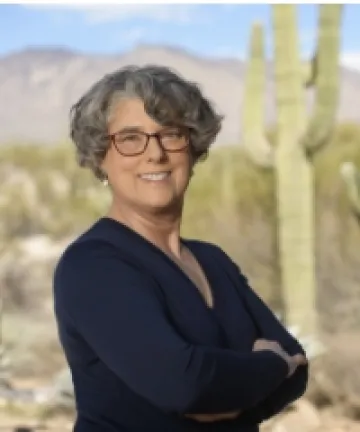
Esther M. Sternberg M.D.
UA RESTRUCT FUNDED PROJECTS
Research Director, Andrew Weil Center for Integrative Medicine, Founding Director, University of Arizona Institute on Place, Wellbeing & Performance, linking AWCIM, UArizona’s Colleges of Medicine; Architecture, Planning and Landscape Architecture; Engineering; and Science
Internationally recognized design and health, mind-body science pioneer, Esther Sternberg M.D., is Research Director, Andrew Weil Center for Integrative Medicine, Founding Director, University of Arizona Institute on Place, Wellbeing & Performance, linking AWCIM, UArizona’s Colleges of Medicine; Architecture, Planning and Landscape Architecture; Engineering; and Science. Formerly Senior Scientist and Section Chief, National Institutes of Health, and founding member, American Institute of Architects’ Design and Health Leadership Group and Research Consortium, she advised the U.S. Surgeon General, General Services Administration, Department of Defense, U.S. Green Building Council, Australian Green Building Council, International WELL Building Institute’s Task Force on COVID-19, and the Vatican on design and health. Her Wellbuilt for Wellbeing – GSA research is informing healthy design standards. She received the Federal Government’s highest awards, was recognized by the National Library of Medicine as one of 339 women who “Changed the Face of Medicine,” received an Honorary Doctorate in Medicine, Trinity College, Dublin, and served as member and Chair of NLM’s Board of Regents. She received her M.D. from McGill University, Montreal, Canada, authored over 235 scholarly articles, edited 10 technical books. Her best-selling Healing Spaces: The Science of Place and Well-being helped spark the design and health movement’s re-birth, 21st century style.
CONVERSATION: Looking to the Future
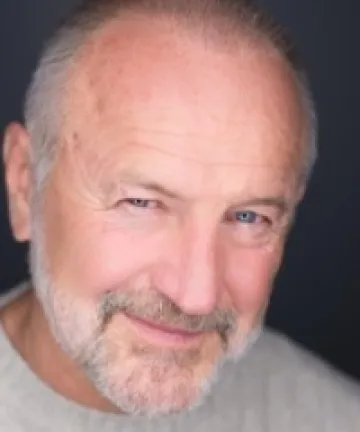
Steven Winston
CONVERSATION LEADER: LOOKING TO THE FUTURE
Leader of an international consortium to deliver nuclear medicine and radiopharmaceuticals to countries in Africa, MENA, and SE Asia. He has 48 years of experience in various aspects of research, engineering, and construction, serving in senior management roles.

Alexander More
CONVERSATION PARTICIPANT: LOOKING TO THE FUTURE
Associate Professor of Environmental and Public Health, LIU, in New York City. Assistant Research Professor, Climate Change Institute, University of Maine, & Research Associate and Group Leader, SoHP, Harvard University
Alexander More is an award-winning climate and health scientist. He is Associate Professor of Public Health at Long Island University in NYC, Assistant Research Professor at the Climate Change Institute and group leader for a revolutionary climate & health collaboration at Harvard University, where he earned his PhD. He teaches and directs the Honors College in the School of Health Professions at LIU in New York City, where he is starting a new center for interdisciplinary pandemic and climate research.
With projects spanning four continents and multiple expeditions, Dr. More uses cutting-edge tools to engage the public in the realities of climate change and the quest for solutions to it. He leads a project on the impact of environmental change on human and ecosystem health and the economy. He combines natural, archaeological, economic and public health data in landmark articles and interviews featured in The New York Times, The Washington Post, CNN, The Guardian, Popular Science, Natural History Magazine, and more than 150 other print and online publications worldwide.
He served as a staffer in the U.S. Senate office of Sen. Ted Kennedy while he was drafting the Affordable Care Act. He is a former Managing Director of the World Ocean Forum, current director of communications for Blue Ocean Watch, and a fellow of the Explorers Club and the Theodore Roosevelt Institute. All his published data is freely available to the public, and also displayed on Harvard MAPS, a groundbreaking, Google-maps-like website that overlaps ultra-high-resolution environmental, health, and economic big data in maps that use AI and machine learning to find trends humans could never see.
Raised and educated in southern Italy and Greece in the early part of his life, Dr. More moved permanently to New York City on his own to complete his secondary education. He attended college in Chicago and eventually Washington University in St. Louis. He continued his studies in an interdisciplinary PhD program at Harvard University, where he earned multiple coveted awards and where he has conducted research for the past 15 years.
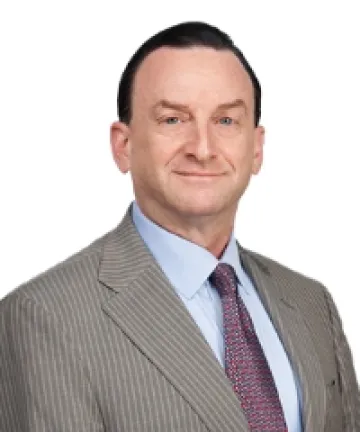
Brian Olasov
CONVERSATION PARTICIPANT: LOOKING TO THE FUTURE
Executive Director – Financial Services; Consulting, Carlton Fields; Adjunct Professor, NYU Schack Institute of Real Estate
Brian Olasov has more than three decades of strategic business and capital market experience and also an extensive background on real estate capital markets, troubled mortgage loans, and banking challenges. He works closely with the firm’s clients and attorneys providing financial due diligence on distressed mortgage loans, portfolios, and institutions including credit restructuring, valuation, bulk sales, and securitization. He provides analytical litigation support to the firm by developing damage estimates and financial implications of legal theories.
Brian provides expert witness testimony to other law firms in disputes involving residential and commercial mortgage-backed securities (MBS), mortgage loan servicing and mortgage loan origination. Brian has testified before the Congressional Oversight Panel for the Troubled Asset Relief Program (TARP) on MBS and banks’ impact on real estate markets.
He serves or has served on a variety of boards and committees including board of governors, executive committee, audit committee member, and chair of the Policy Committee of the Commercial Real Estate Finance Council (CREFC); board of governors of Commercial Mortgage Securitization Association (CMSA), co-chair of CMSA International Committee, and CMSA European Chapter founder; vice chairman of the Real Estate Capital Resources Association Mortgage Securitization Committee; editorial board member of Commercial Real Estate Finance World; and board member of the Trigild Advisory Council. He is also an active participant in the Mortgage Bankers Association, Georgia Bankers Association, and Yale Alumni Schools Committee.
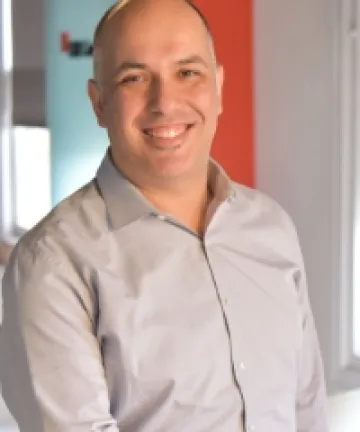
Jose Sanchez, Assoc. AIA, LEED AP BD+C
CONVERSATION PARTICIPANT: LOOKING TO THE FUTURE
Mixed-Use Design Leader | Senior Associate, DLR Group
Jose is a Mixed-Use Design Leader with a passion for the relationship between people and place. He has extensive domestic and international experience. His projects range from new town centers to big-box retail repositioning, adaptive reuse, vertical mixed-use, horizontal multi-use and housing. He is a highly motivated professional with a keen grasp of placemaking, entertainment, livability, and mixed-use development. His vision is geared toward design excellence, client satisfaction, and exploration of best practices within his team to benefit clients and communities. Within his Mixed-Use Studio, Jose strives to heighten collaboration and create imaginative design solutions that address the role of mixed-use projects in creating neighborhood vitality and supporting community health. His approach offers results that are unique and provide a quality of work in line with DLR Group’s mission to elevate the human experience through design.

